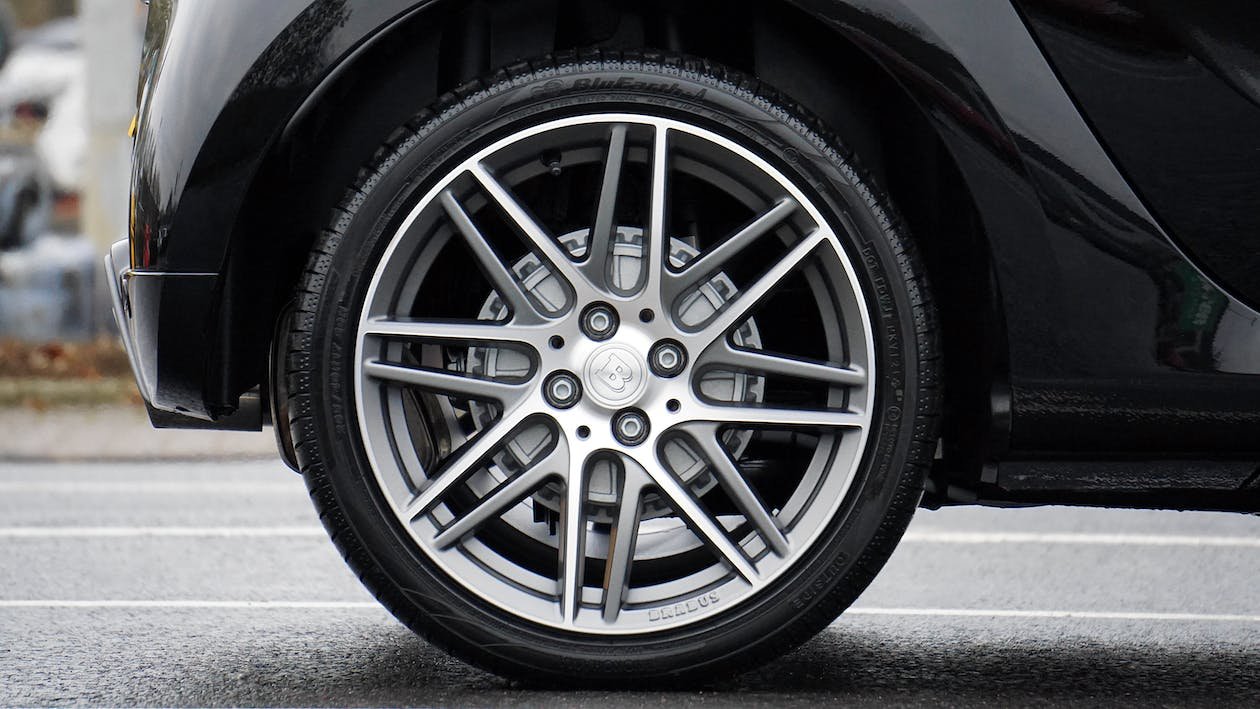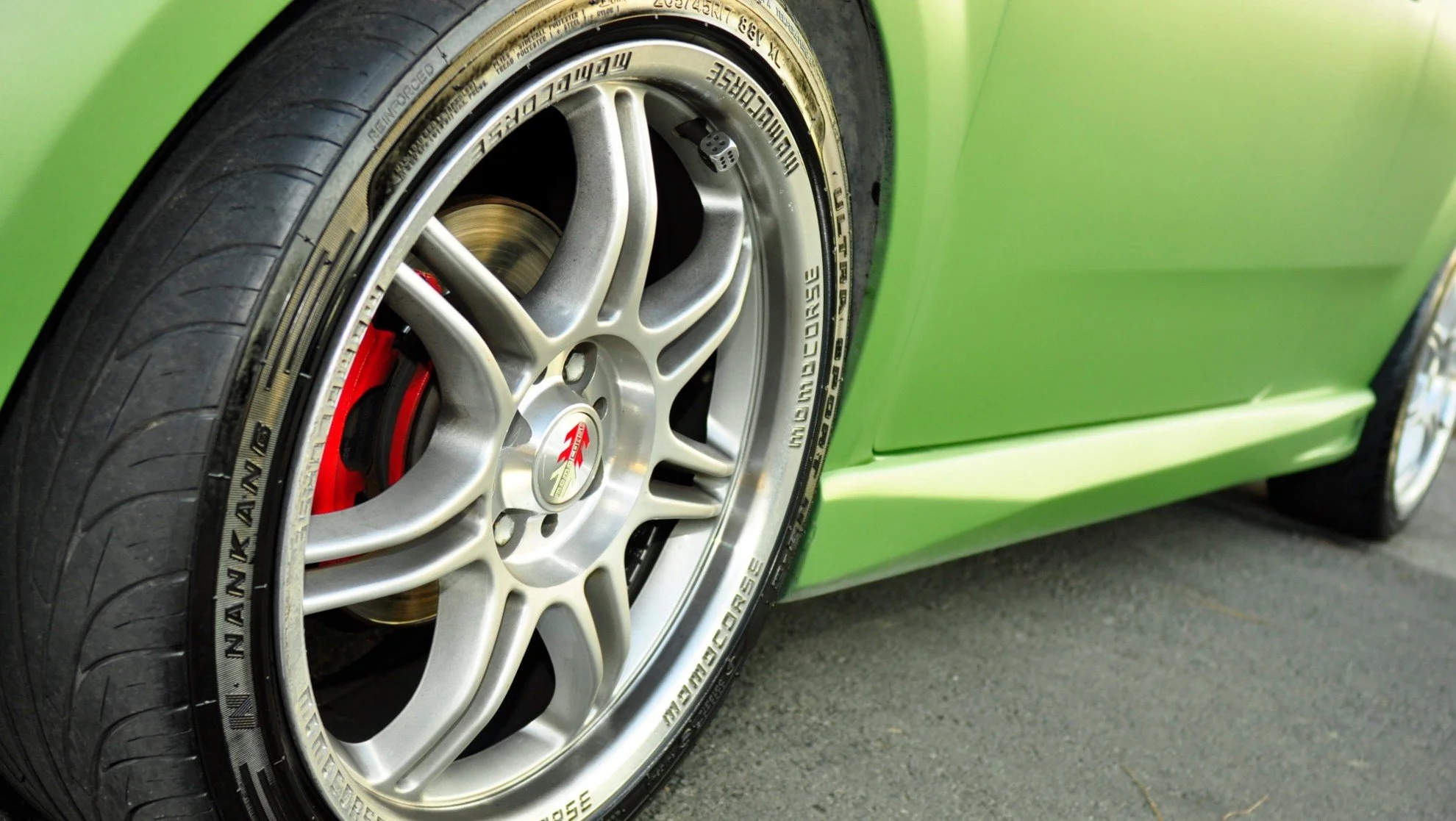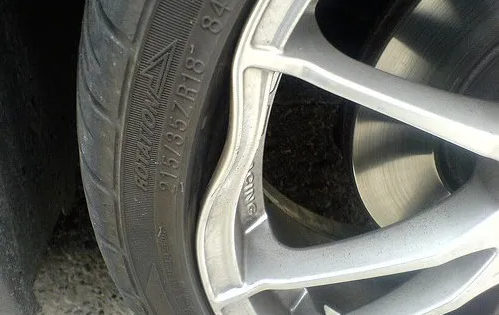Do Car Rims Wear Out?
Car rims or wheels are some of the most critical parts of any motor vehicle. However, their solid build and durable materials make people assume they never need to be changed. So, that begs the question, “Do car rims wear out?” or do the ones you already have last forever?
Photo by Pexel
Car rims or wheels can and do wear out. You can expect a standard set of rims to last you approximately 10 years. However, they can wear out sooner due to excess damage from impacts or scraping, underinflated tires, and corrosion. When they wear out, you’ll experience excess vibrations in the steering wheel, wheel alignment issues, and other problems.
In this guide, you’ll learn everything there is to know about car rims and how they wear out over an extended period. Then, as you read to the end, you’ll understand what symptoms tell you that your rims must be replaced as soon as possible.
What Role Do Rims Play On A Car?
Firstly, you must understand that the terms ‘rim’ and ‘wheel’ are often used synonymously, even though they have differences.
Still, let’s do a quick recap about what rims are and the role they play in your car. Each rim or wheel serves as a solid base for you to wrap your tires around. In doing so, the rim also ensures that you can contain high levels of pressurised air inside the tire to keep it in optimal shape.
Overall, your rims provide points of leverage that your car can use to turn your tires and move your car forward.
Rims are typically made from solid materials like steel, aluminium alloy, and also carbon fibre. Each of those materials has its fair share of pros and cons that affect the wheel’s durability and also performance.
Despite the solid materials, your rims or wheels don’t last forever. You’ll find out more about their limited lifespan below.
Do Car Rims Eventually Wear Out?
Photo by autoevolution
Yes, car rims will eventually wear out regardless of the materials they’re made of. That’s because rims experience plenty of wear and tear throughout their lifespan, even when your vehicle isn’t mobile.
Remember: even when your car isn’t mobile, all of its weight is still pressing down on your rims and the tires around them.
You can expect a set of rims to typically last approximately 10 years. However, that lifespan is shortened if the rims experience more aggressive wear and damage over the years.
Given that rims don’t have an exact date when they’ll go bad, it’s an excellent idea for you to inspect them regularly.
You can ask your mechanic to check them for you when changing your tires, replacing your brake pads or performing other maintenance tasks around your rims.
What Happens When Your Rims Wear Out?
You’ll know that your rims are wearing out when you notice the following signs:
Visible damage: The first thing that happens when your rims wear out is they’ll develop visible signs of damage. In other words, you and everyone else can see from afar that your rims no longer look their best. While this isn’t a problem that affects your car’s performance, it does undermine your vehicle’s aesthetics.
Excessive vibrations: Worn-out rims will also cause excessive vibrations that you’ll feel through the steering wheel. That’s because the structure of the affected rim is undermined, and it's no longer turning smoothly on the road. Excessive vibrations can tire your hands, causing fatigue that affects your driving comfort.
Tire pressure loss: Earlier, you read that rims help your tire store air inside. So, a worn-out or damaged rim will cause the tire to lose air faster than expected. That will be problematic because you’ll find yourself pumping your tires more often than you usually would.
Repetitive alignment issues: When worn-out rims cause the symptoms mentioned above, that will also lead to repetitive wheel alignment issues. Any realignment you perform on your wheels will quickly come undone after a while if you’re driving on badly worn-out rims.
Cracks or breaks: Lastly, excessively worn-out rims will develop small cracks that continuously grow with time. If you don’t replace the worn-out rim, that crack will eventually cause the whole wheel to crack. As you can imagine, that’s incredibly dangerous, especially if it happens while you’re driving.
As you can see, worn-out rims are a severe problem for your vehicle. That’s why you must inspect them regularly and replace them as soon as you see signs of excess wear.
What Causes Your Rims To Wear Out Faster?
Photo by Classic Touch Of South Florida
All rims will wear out eventually. However, some factors can speed up that rate of wear and cause them to go bad much sooner than they usually would.
You’ll want to take note of these causes because they’ll cause you problems in the long run, like having to spend a lot on rims throughout your vehicle’s overall lifespan.
Here are a few things that can cause your rims to wear out faster:
1. Repeated Hard Impacts
The first and most common reason for premature rim wear is repeated hard impacts over an extended period. That includes hitting potholes, curbs, and large rocks on the road often.
Repeatedly failing to avoid hitting those objects will cause the rims to take on more pressure than usual. As a result, the affected rims will wear out faster than the others.
2. Side Scraping
Aside from hitting hard things head-on, repeatedly scraping your rims on the side will also speed up their wear. For instance, some drivers have bad habits and regularly scrape their rims against the curb while parking their vehicles.
Repeatedly scraping the outside of your rims is incredibly damaging in the long run.
3. Low Tire Pressure
Your tires wrap around your rims and take a lot of pressure off them. However, that’s only true if you correctly maintain the tire air pressures.
Suppose you habitually drive with underinflated tires or drive a long distance with flat tires. In that case, your rims will experience enough stress to cause premature damage.
4. Corrosion
Last but not least, rims also wear out due to corrosion. A typical example is if you drive and park in an area close to the ocean. The sun, salt, and moisture in the air speed up the corrosion in car rims, causing them to wear out quicker.
Naturally, this won’t affect your car unless you live in coastal areas throughout Malaysia.
For more informative blog posts like this one and many more, stay tuned to the official website of TOC Automotive College, the Best Automotive College in Malaysia. There, you’ll find frequent updates on articles that help readers like you become better-informed drivers in Malaysia and beyond!



